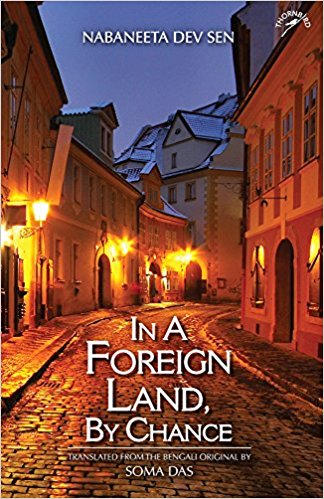Travel writing, in the Bengali literary tradition, has an extraordinary appeal. From first-hand accounts of perilous/adventurous journeys to faraway lands to more comfortable ones nearer home, Bengalis love them all. They also love completely fictional narratives as long as they offer the ‘real’ feel of travel. It is not surprising, therefore, to find an overwhelming number of Bengali writers engaging in such writing. A quick survey of published travelogues suggests that their quality vary substantially; some are wonderful pieces of literature, while others, often like the Lonely Planet ones, are typically touristy and dull. Now, we also have a qualitatively different kind of travel writing where writers turn to travel, either real or fictional, to say something more; travel, then, is deployed to build on the larger plot/theme a writer wishes to develop. Nabaneeta Dev Sen, a successful and widely travelled Indian (Bengali) academic and litterateur, does precisely this in her novella, In a Foreign Land, By Chance. This slim book may be called, if you like, a (fictional) travelogue, but certainly not of the regular kind.
Originally written in Bangla and published in Krittibas in 1977, In a Foreign Land narrates the experience of Bipasha Choudhury’s short stay in the then undivided Communist Czechoslovakia. The story takes off from the time Bipasha, a London based (Indian Bengali) English language writer and poet, is invited to a writers’ conference in the East European country. Accepting the invitation, she finds herself, first, in the nineteenth century Budmerice Castle (the conference venue) located close to Bratislava in the southern region of Slovakia, and then in nearby Nitra. Many things begin to happen since: gestures, incidents, conversations—sometimes loud, sometimes subtle—and these eventually turn Bipasha’s rather routine (‘meet-repeat-eat-retreat’ conference) travel to a life (mind) altering experience. We first meet Bipasha in the garden of the heavily fortified Budmerice Castle as she tries to find her way out to reach the post office to send a letter home to her anxiety-prone father. Denied permission (quite curiously, in German) by the guards she, however, finds help coming from Yohan, a prominent Slovak litterateur and organizer of the conference.

